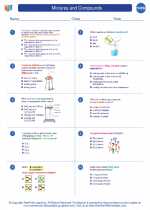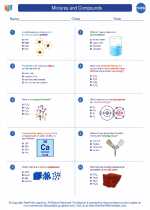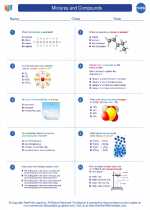Nutrition
Nutrition is the science that interprets the interaction of nutrients and other substances in food in relation to maintenance, growth, reproduction, health, and disease of an organism. It includes the processes by which the human body ingests, digests, absorbs, transports, utilizes, and excretes food substances.
Key Concepts in Nutrition
There are several key concepts in nutrition that are essential to understand:
- Nutrients: Nutrients are the substances found in food that are essential for growth, energy production, and overall health. They include carbohydrates, proteins, fats, vitamins, and minerals.
- Macronutrients: These are nutrients that are required in large amounts by the body and include carbohydrates, proteins, and fats.
- Micronutrients: These are nutrients that are required in smaller amounts by the body and include vitamins and minerals.
- Calories: Calories are a measure of the energy provided by food and are essential for maintaining bodily functions and physical activity.
- Dietary Guidelines: These are evidence-based recommendations for a healthy diet provided by government agencies or health organizations.
- Healthy Eating Patterns: These patterns emphasize a variety of nutrient-dense foods, within calorie needs, to support overall health.
- Food Labels: Understanding food labels can help individuals make informed choices about the foods they consume, by providing information about serving sizes, calories, and nutrient content.
Study Guide for Nutrition
When studying nutrition, it's important to focus on the following areas:
- Understanding the different types of nutrients and their functions in the body.
- Learning about macronutrients and micronutrients, and the recommended daily intake of each.
- Exploring the concept of calories, energy balance, and how they relate to weight management.
- Reviewing the dietary guidelines and healthy eating patterns recommended for different age groups and populations.
- Practicing reading and interpreting food labels to make informed food choices.
- Exploring the impact of nutrition on overall health, disease prevention, and management.
[Nutrition] Related Worksheets and Study Guides:
.◂Chemistry Worksheets and Study Guides High School. Mixtures and Compounds
Worksheet/Answer key Mixtures and Compounds
Mixtures and Compounds  Worksheet/Answer key
Worksheet/Answer key Mixtures and Compounds
Mixtures and Compounds  Worksheet/Answer key
Worksheet/Answer key Mixtures and Compounds
Mixtures and Compounds 

 Worksheet/Answer key
Worksheet/Answer key
 Worksheet/Answer key
Worksheet/Answer key

The resources above cover the following skills:
Chemistry II
Properties of Matter
Develop and use models to explain the differences between chemical compounds using patterns as a method for identification.
Use mathematical representations to quantify matter through the analysis of patterns in chemical compounds.